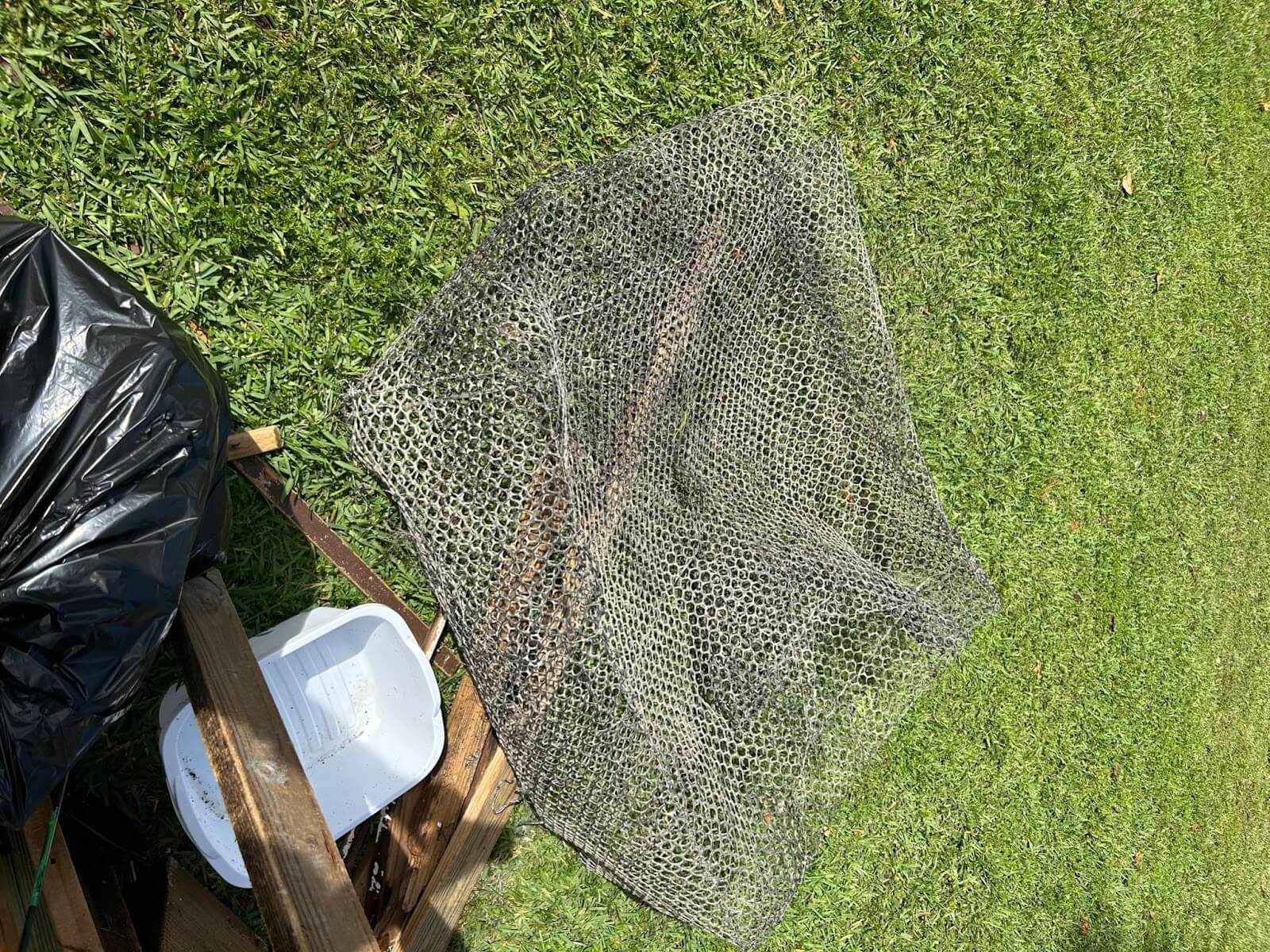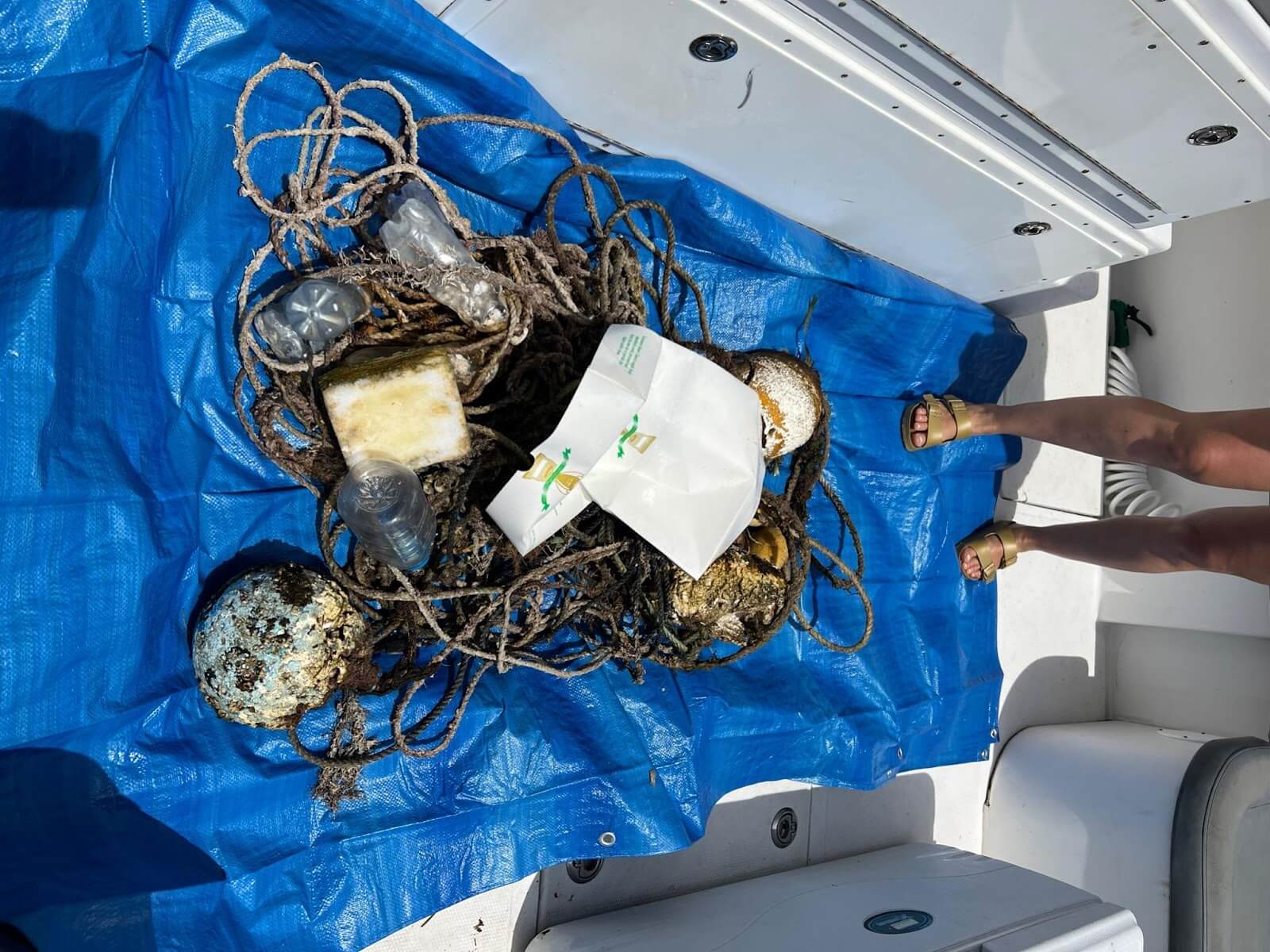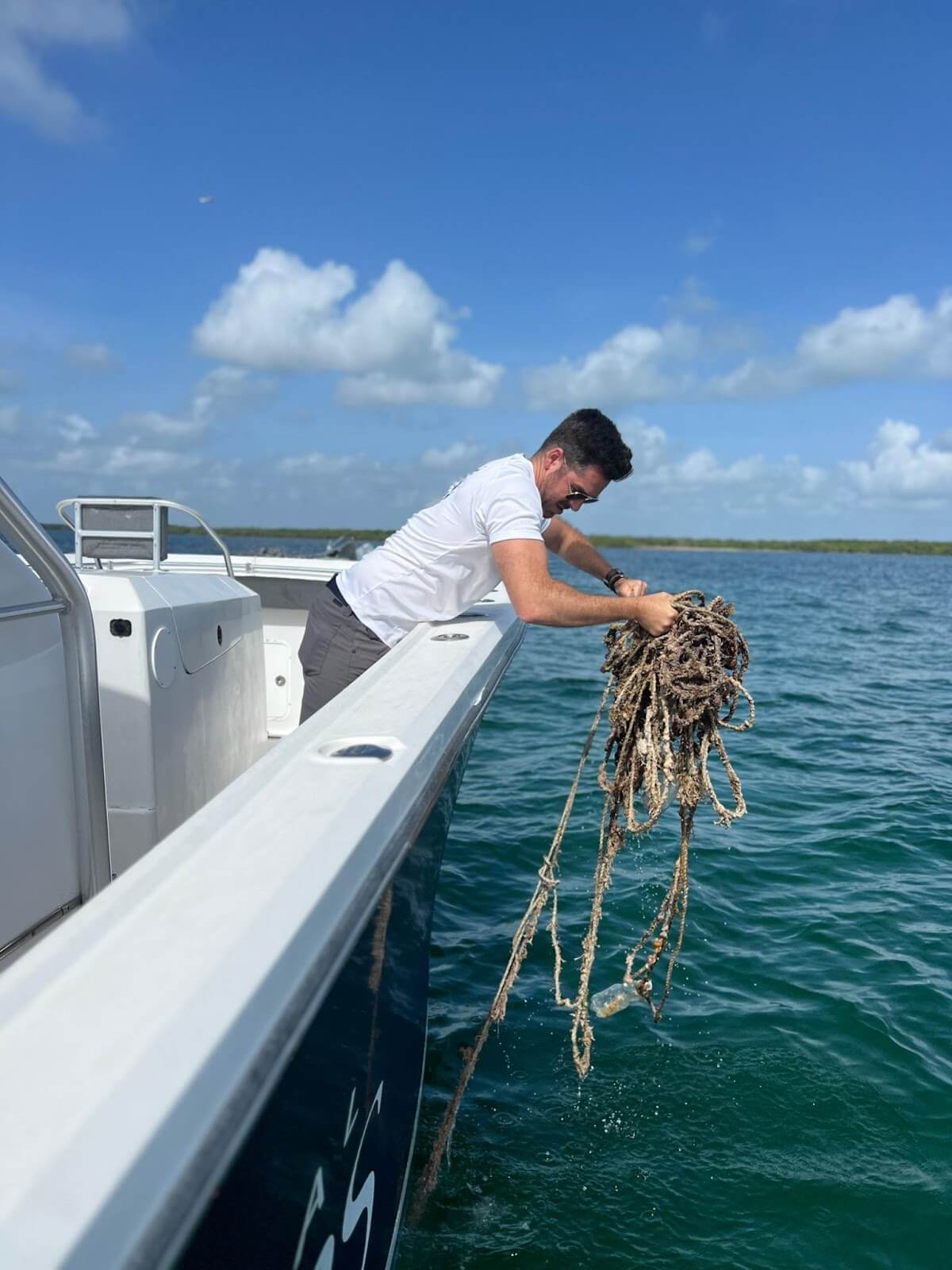During a SeaKeepers coastal cleanup this month, a few volunteers came walking over carrying a large square object that seemed to be made of netting or wire. They had pulled it out of the shallow water at Morningside Park, a large park in Miami that borders Biscayne Bay where SeaKeepers holds cleanups once a month. We determined the object to be a derelict crab or lobster trap that had likely been forgotten about and never removed from the ocean floor, but was fortunately spotted by our volunteers.

Luckily, we found the trap empty of any marine creatures, an outcome that is not always so likely. Ghost fishing is the term used to refer to derelict fishing gear that “continues to fish”. Such gear such as nets and traps can be purposefully abandoned or lost for many reasons. Some are lost due to causes such as extreme weather that can dislodge gear and cause it to be relocated by currents. Fishing boats that are overloading their nets or trawling are also at risk of tearing and losing the nets. Other times gear is purposefully left behind due to the high cost of retrieval and lack of access to proper disposal of items of such size.
World Animal Protection estimates that 25,000 fishing nets are lost each year. The size of many of these nets is not to be underestimated. Take purse seine nets for example, which are deployed to catch large schools of pelagic fish and can be thousands of feet long and reach hundreds of feet in depth. These nets are also particularly likely to cause bycatch, as they encompass large areas of the ocean without selecting for size or species. Species such as sea turtles, dolphins and sharks may become tangled in these nets and sustain injuries or die trying to escape. When nets of this size are abandoned, they become debris that can cover a large amount of the ocean floor and can smother coral reefs and seagrass meadows, ecosystems that are incredibly important to the ocean’s stability.
Fish and other marine creatures can become trapped in abandoned traps, nets, ropes and other gear and typically die, attracting scavengers and other predators which may also end up entangled in the ghost gear. Animals have been found swimming with fishing line or nets tied tightly around them in a manner that restricts their breathing or slows them down and can lead to their death. Fishing line and hooks that are abandoned may be ingested by sea turtles and other marine animals, causing internal damage or suffocation. In this manner, ghost nets and traps are contributing to the overfishing of many fish stocks and the death of many megafauna.


Ghost nets and traps are a reminder of how important sustainable fishing techniques are, including the proper disposal of gear that is inactive. By enforcing proper disposal and encouraging safe fishing techniques, we can reduce the amount of gear and other marine debris that is discarded in the ocean every year. Marine debris cleanups can help reduce ghost gear, such as Ocean Aid 360’s Ghost Trap Rodeo event series which motivates local anglers to find and remove ghost traps and nets and provide data on bycatch species and marine debris hot spots.
All boaters, whether anglers or not, can do their part to partake in sustainable boating practices to minimize their impact on the environment. Visit SeaKeepers A Green Guide to Boating to learn more.
References:
Cook, B. (2020, November 26). Ghost Fishing 101: Everything you need to know. Deep Trekker.
https://www.deeptrekker.com/news/ghost-fishing
Fishing Gear: Purse seines. NOAA Fisheries. (2019, February 12).
https://www.fisheries.noaa.gov/national/bycatch/fishing-gear-purse-seines#:~:text=Purse%20seines%20can%20reach%20more,mesh%20size%2C%20and%20target%20species
Hancock, L. (n.d.). Our Oceans are haunted by ghost nets: Why that’s scary and what we can do. WWF.
https://www.worldwildlife.org/stories/our-oceans-are-haunted-by-ghost-nets-why-that-s-scary-and-what-we-can-do--25
Our projects: Coastal Community Programming. Ocean Aid 360 . (n.d.).
https://www.oceanaid360.org/our-projects
What are ghost nets? the silent killers of our oceans: ORP. Olive Ridley Project. (2023, July 11).
https://oliveridleyproject.org/what-are-ghost-nets
What is ghost fishing?. NOAA’s National Ocean Service. (2011, September 27).
https://oceanservice.noaa.gov/facts/ghostfishing.html


